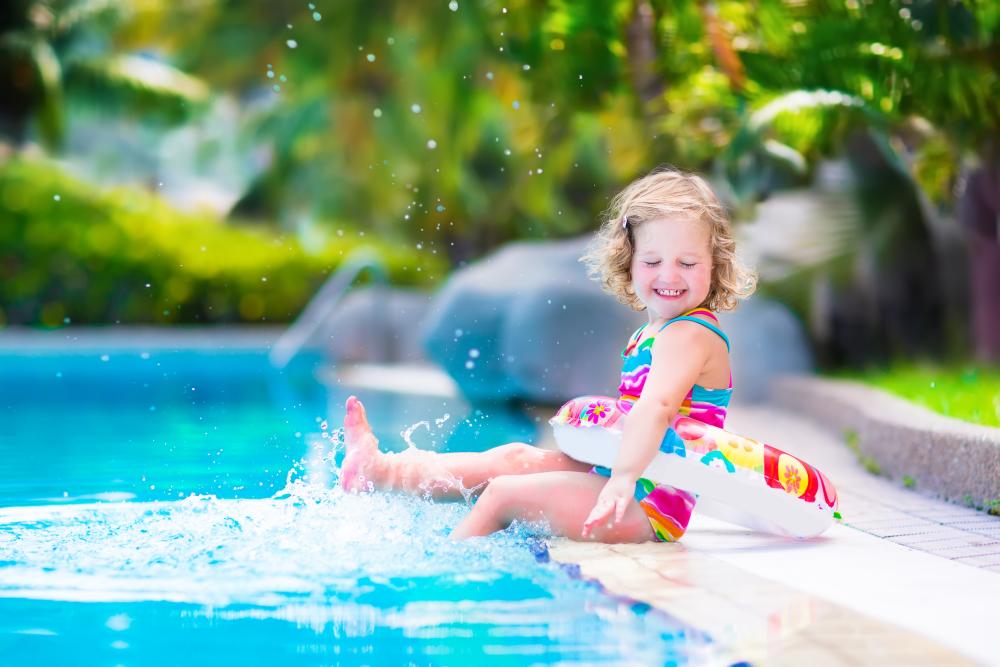Confidence is a crucial skill for children, shaping how they approach challenges, social situations, and new experiences. One powerful way to build confidence early is through swimming lessons. Learning to swim at a young age provides children with physical skills, independence, and the ability to face fears in a controlled environment. Beyond water safety, early swimming lessons encourage resilience, self-trust, and a sense of accomplishment. If you want to help your child grow into a confident and capable individual, getting them in the water early is a great place to start.
Developing Physical Coordination and Strength
Swimming requires a unique combination of motor skills, balance, and strength. Unlike other physical activities, it engages the entire body, improving coordination and muscle control. As children develop these skills, they gain a sense of mastery over their movements. To strengthen the core, arms, and legs, lessons covered by the British Swim School enhance coordination and promote overall body strength and endurance. This physical confidence carries over to other activities, making them more willing to try new sports or physical challenges. Stronger coordination and body awareness also help with posture, agility, and overall fitness, contributing to a confident, active lifestyle.
Overcoming Fear and Building Courage
Many young children are initially afraid of water, whether it’s the deep end of a pool or simply being submerged. Early swimming lessons help them confront and conquer this fear in a controlled, supportive environment. Instructors guide children through gradual steps, starting with basic water safety and gradually introducing more complex skills. As they learn to float, kick, and swim, children gain a sense of control over their movements and realize they can handle the water safely. This process of overcoming fear not only boosts their confidence in the pool but also encourages a mindset of courage when faced with other challenges, whether in school, social settings, or at home.
Encouraging Independence and Responsibility
In swimming lessons, children are encouraged to take responsibility for their actions, from listening to instructions to managing their safety in the water. They learn to follow safety guidelines, such as floating on their back or kicking independently, which fosters a sense of personal accountability. As they progress, kids realize that their success in the water is largely up to their efforts, building a strong sense of independence. This newfound self-reliance translates into other areas of life, as children develop the confidence to handle challenges on their own, make decisions, and trust their abilities.
-
- Learning to follow instructions: Swimming lessons teach kids the importance of listening carefully and following directions. As they learn new strokes or safety rules, they gain confidence in their ability to absorb and apply knowledge independently, boosting their self-esteem.
Achieving Goals and Celebrating Progress
As they progress through lessons, they hit clear milestones – whether it’s mastering floating, perfecting a stroke, or swimming a specific distance. Each new skill learned provides a tangible sense of accomplishment. These small wins teach children that success comes from effort, practice, and persistence. The satisfaction of reaching a goal, no matter how small, reinforces their belief in their abilities and shows them that challenges can be overcome. Celebrating these achievements not only boosts their self-esteem but also motivates them to keep pushing forward, both in swimming and in other areas of life.
Instilling a Lifelong Sense of Safety and Preparedness
Children who learn to swim develop a deep understanding of how to stay safe in and around water. They gain the skills to recognize potential dangers, like strong currents or deep water, and know what actions to take in those situations. This awareness not only builds their confidence in aquatic environments but also translates to a broader sense of preparedness in life. By learning water safety, children grow up with the knowledge and capability to handle various situations, knowing that they have the skills to stay safe and protect themselves and others when needed.
Enhancing Social Skills and Comfort in Group Settings
In a pool environment, they interact with peers, take turns, and learn to work together toward common goals, such as mastering a swimming technique or completing a group activity. These lessons encourage communication, cooperation, and teamwork, all of which are key to building strong social connections. As children become more comfortable in group settings, they gain the confidence to engage with others in different situations, such as at school or during extracurricular activities. The supportive and structured environment of swimming classes fosters a sense of belonging and helps kids feel more confident in their social interactions.
Early swimming lessons do more than teach kids how to stay afloat.
They build confidence by helping children overcome fear, develop physical coordination, gain independence, set and achieve goals, improve social skills, and learn life-saving safety techniques. These experiences create a foundation for self-trust and resilience that carries into every aspect of life. If you want to boost your child’s confidence in a meaningful and lasting way, getting them into the water early is one of the best decisions you can make.









